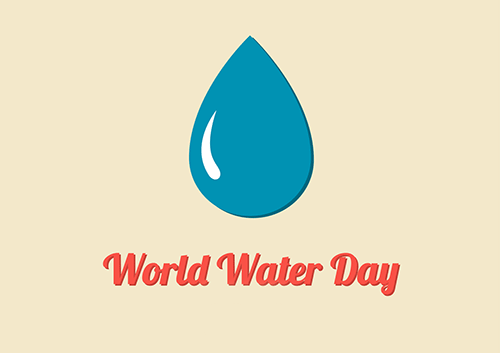 Every year on March 22, people around the globe celebrate World Water Day to advocate for improved access to clean water internationally. To date, there are over 663 million people living without a safe water supply close to home, leading to families spending countless hours retrieving water from distant sources or coping with the health impacts of using contaminated water.
Every year on March 22, people around the globe celebrate World Water Day to advocate for improved access to clean water internationally. To date, there are over 663 million people living without a safe water supply close to home, leading to families spending countless hours retrieving water from distant sources or coping with the health impacts of using contaminated water.
This year, the theme of World Water Day is “Wastewater.” According to the World Health Organization, over 80 percent of wastewater flows back into nature, polluting the environment and wasting what could be a recycled resource. By exploring wastewater and finding ways to safely manage and recycle it, a sustainable source of water, energy, and nutrients could be recovered.
Critical gaps in water and sanitation
For ECS members, wastewater treatment and efforts to improve access to clean water in the developing world is familiar territory.
In 2014, ECS partnered with the Bill & Melinda Gates Foundation to establish the first Science for Solving Society’s Problems challenge, leveraging the brainpower of scientists from around the world to create innovative solutions to some of the most pressing problems in global water and sanitation.
Research in energy and water
While the Science for Solving Society’s Problems challenge may be over, ECS efforts in water and sanitation continue.
This year, ECS will hold the 7th International ECS Electrochemical Energy Summit during the 232nd ECS Meeting, taking Place October 1-6 in National Harbor, MD. The summit will include three distinct symposia, including the Energy-Water Nexus. During this symposium, researchers will focus on the connection between energy and water and emerging technologies that could improve access to clean, safe, and affordable resources across the globe.
“This symposium provides an opportunity for researchers to see what the broader picture is,” says ECS fellow Eric Wachsman, organizer of the symposium and professor at the University of Maryland. “This is a chance to see the impact of the research and how it can improve the world.”
From corrosion to blue energy
The scope of ECS members’ work in water goes beyond wastewater treatment, however, and touches areas from corrosion in water infrastructure to the utilization of sea water.
“We need to make sure we are providing safe water,” says Gerald Frankel, ECS fellow and expert in corrosion science and technology. “We need to be confident in the quality of the water we’re drinking.
(READ: How Lead Pipes Poison Your Water)
Corrosion is a dangerous and extremely costly problem, with global repair costs associated with corrosive effects coming in around $2.5 trillion per year. The water crisis in Flint, MI highlighted the damage the corrosion could have not only fiscally, but also on health. ECS members like Robert Kelly look to bring a new perspective to corrosion science, bringing new understanding and insight to existing issues.
“One of the sayings about corrosion is that we can explain everything and predict nothing,” Kelly says. “We’re looking to turn that around.”
(READ: Predicting Corrosion: From Flint to Failing Infrastructure)
Other researchers working in ECS’s technical domain focus on osmotic power, otherwise known as “blue energy.” By utilizing sea water, researchers are focusing on developing salt water computers, new medical devices, and water splitting applications that could lead to solar fuels and a potential shift in energy infrastructure.
(READ: What is Blue Energy?)
Whether it’s addressing lead contamination in a city’s water pipes or disease-causing parasites in the Sudan, electrochemists can help improve access to safe drinking water around the world.

